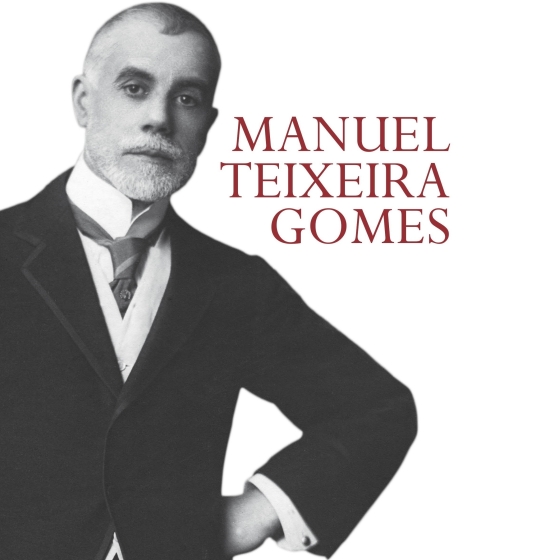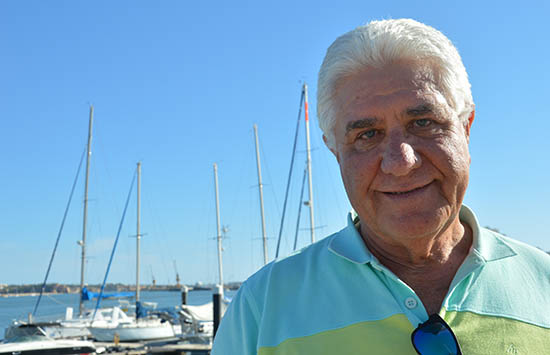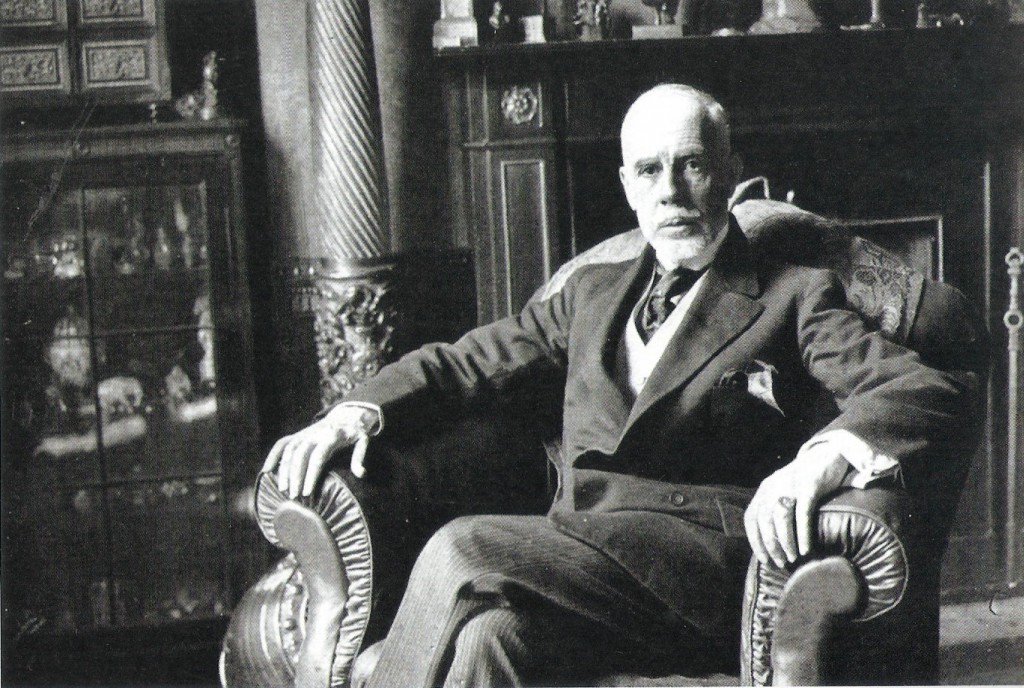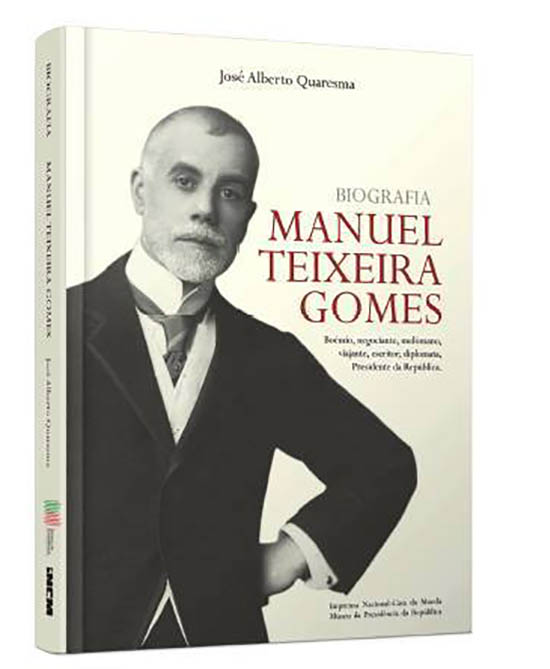 Eight years of research work, little-known stories and facets, 632 pages, 1700 footnotes, “extensive” bibliography, family tree, chronology. This is a brief description of the book «Biography – Manuel Teixeira Gomes», by José Alberto Quaresma, also from Porto, which will be launched tomorrow, October 18, at 18:30 pm, in a session at the Antigo Royal Picadeiro (National Coach Museum) , in Lisbon, in an edition of the Museum of the Presidency of the Republic and of the National Press - Mint.
Eight years of research work, little-known stories and facets, 632 pages, 1700 footnotes, “extensive” bibliography, family tree, chronology. This is a brief description of the book «Biography – Manuel Teixeira Gomes», by José Alberto Quaresma, also from Porto, which will be launched tomorrow, October 18, at 18:30 pm, in a session at the Antigo Royal Picadeiro (National Coach Museum) , in Lisbon, in an edition of the Museum of the Presidency of the Republic and of the National Press - Mint.
The launch date was chosen on purpose, as tomorrow marks the 75th anniversary of the death of Manuel Teixeira Gomes, who was, as you can read on the cover of the book, «bohemian, businessman, music lover, traveler, writer, diplomat and President of the Republic”.
The presentation of the work will be in charge of three people, the poet Nuno Júdice, Nuno Severiano Teixeira and António Valdemar, «each of them working on different aspects of Teixeira Gomes that are covered in the book», explained the author, José Alberto Quaresma, in an interview to Sul Informação.
But the session will also feature a small concert by cellist Paulo Gaio Lima, who will interpret Bach's «Suite nº 1 for Cello», which may have been one of Teixeira Gomes' favorite musical works. But that is not the only connection to the former head of State born in Portimão: it is that Paulo Gaio Lima «has played many times with Guilhermina Suggia's cello, which Teixeira Gomes listened to in London and who even played at the Belém Palace, when he was President of the Republic».
Portimão «follows the entire biography, almost as if he were a secondary character»
And because what is intended to be done tomorrow is a real celebration, the launch of the biography also includes the screening of an excerpt from the feature film «Zeus», by Paulo Filipe Monteiro, still unpublished, «about the period in the life of Manuel Teixeira Gomes from his resignation as President of the Republic to his death in exile in Algeria».
There will also be lreadings of excerpts from literary works by Manuel Teixeira Gomes by Silvina Pereira (actress and stage director) and Jorge Vaz de Carvalho (baritone).
But what is this biography of Manuel Teixeira Gomes, a man of the world who, in 1925, already sensing the approaching dictatorship and tired of Portuguese politics, resigned from the highest office in the Republic and voluntarily exiled himself in a small town on the coast of Algeria?
The book, explains its author José Alberto Quaresma, «is almost a dialogue between Teixeira Gomes and me», being somehow «innovative in terms of biography», since it is «written in the present time».
Divided into seven parts, the book “begins at the beginning of the 1950th century, with the arrest of Teixeira Gomes' grandfather, who was a liberal and ended up dying in jail as a political prisoner, describes an enormous temporal arc, which runs until XNUMX, with the return of mortal remains to Portimão». In fact, the hometown of the statesman and writer «follows the entire biography, almost as if it were a secondary character» of the story told here.

To write this biography that addresses all aspects, even the most unknown, of the life of the statesman and writer, José Alberto Quaresma, himself a poet and teacher, searched for years the estate of Teixeira Gomes in the National Library («50 boxes with thousands of documents”), as well as the collection of the Museum of the Presidency, the Mário Soares Foundation, the Ministry of Foreign Affairs, the Museum of Portimão and the District Archive of Faro.
“I went to his personal life, to the intimate life of correspondence with Belmira, the mother of his daughters, and his correspondence with his own daughters,” stresses Quaresma. And the author highlights a contradiction that stands out after analyzing these letters: «he was a left-wing man, very focused on the emancipation of women, but then there is a great contradiction in the advice he gave his daughters, who were very conservative».
But it is not only in relation to the personal life of Manuel Teixeira Gomes that this biography brings news. “The historian must be voracious in the sense of seeking to know reality in its various facets, not just official and unofficial biographies”, explains José Alberto Quaresma. Hence, «there is a lot that was not known and that is here in the book».
«I tried to make my work very eclectic, I didn't want to give more importance to one aspect or the other, but to show Manuel Teixeira Gomes in his various facets, from his personal life, as a businessman who traveled the world, from his literary work, from diplomatic life, of the presidency», adds the author.
José A. Quaresma: «My concern was not to write for academics, but for the general public»
On the other hand, José Alberto Quaresma guarantees that his «concern was not to write for academics, but for the general public, for the person who is curious to know who that man was in his time».
And the book also highlights the thought of the former statesman. The author of this, which is the most complete biography ever written about Manuel Teixeira Gomes, emphasizes that "many of the things he said are brutally topical, namely about politicians." And this is what Quaresma also sought to bring to this biography, which does not limit itself to telling the story of a life – even an adventurous one – but reveals the various facets of this “fascinating” man.

«I tried to bring Manuel Teixeira Gomes up to date, but also linking him to what is still done today around his work, which was very important, although it is largely forgotten at national level».
«Currently, the work of Manuel Teixeira Gomes and his personality continue to arouse enormous artistic interest». In this regard, José Alberto Quaresma recalls the composition “Gente Singular”, made from one of the writer's works by the late composer Bernardo Sassetti. The work was premiered in Portimão in 2010, during the celebrations of the 150th anniversary of the birth of Teixeira Gomes (of which Quaresma was the curator), performed by an orchestra directed precisely by Vasco Pearce de Azevedo, the writer's great-grandson.
But Eurico Carrapatoso also wrote, at the same time, the opera «Sabina Freire», based on another work by Teixeira Gomes, «which has not yet been staged or premiered».
«Ferreira de Castro, Jorge de Sena, David Mourão Ferreira, Urbano Tavares Rodrigues, among others, who were young at the time, had great admiration for Teixeira Gomes, who was a friend of Viana da Motta or Columbano». He was “a very admired person and that admiration comes late. In 1950, when his mortal remains returned to Portimão, in the tribute that was paid, there were Alves Redol, Mário Soares, Salgado Zenha».
Manuel Teixeira Gomes «is a huge figure, due to the quality of his work and his very interesting personality», assures José Alberto Quaresma.
As it is written on the back cover of the book that will be released tomorrow in Lisbon, «this biography is not just about the portrait of a fascinating man, but the portrait of a country and its time. Combining the irreproachable rigor of a historian with the narrative qualities of a novelist, José Alberto Quaresma, the biographer, calls Manuel Teixeira Gomes, the biographee, to the fore, and together they tell us a story – personal and collective – that, at times, moves us , sometimes amuses us and, almost always, challenges us».
The book will then be presented in Portimão, the birthplace of a biographer and biographer, most likely on December 11, the municipal holiday that always takes place under the aegis of the former President of the Republic, who, on that date, raised the then “new villa” to City.
A man with a "busy, long and curious life"
 «On December 10, 1925, Manuel Teixeira Gomes begins the last, and perhaps the most astonishing, chapter of his «hectic, long and curious life». He leaves the office of President of the Republic and embarks, a week later, heading for North Africa, to "go back to the world". Voting to a stubborn exile, he would no longer return to his homeland, nor would he see family and friends.
«On December 10, 1925, Manuel Teixeira Gomes begins the last, and perhaps the most astonishing, chapter of his «hectic, long and curious life». He leaves the office of President of the Republic and embarks, a week later, heading for North Africa, to "go back to the world". Voting to a stubborn exile, he would no longer return to his homeland, nor would he see family and friends.
Bohemian, businessman, music lover, traveler, writer, diplomat and President of the Republic, Manuel Teixeira Gomes, born in 1860, went through, as a witness and protagonist, the great moments of Portuguese history at the beginning of the XNUMXth century: the advent and affirmation of the regime republicanism, participation in World War I, the rise and fall of Sidonism, the intricate post-war negotiations and the political and social maelstrom of the First Republic.
He participated intensely in public life and lived his private life intensely. He collected experiences, knowledge, objects, art, loves, friendships and travels, and gave everything back to us through an admirable literary production – letters, fiction books, essays and chronicles. He corresponded and related to the main figures of his time, from literature to philosophy, from politics to art. Friends he preserved and who admired him despite time and distance».
(text on the back cover of the book)


















Comments